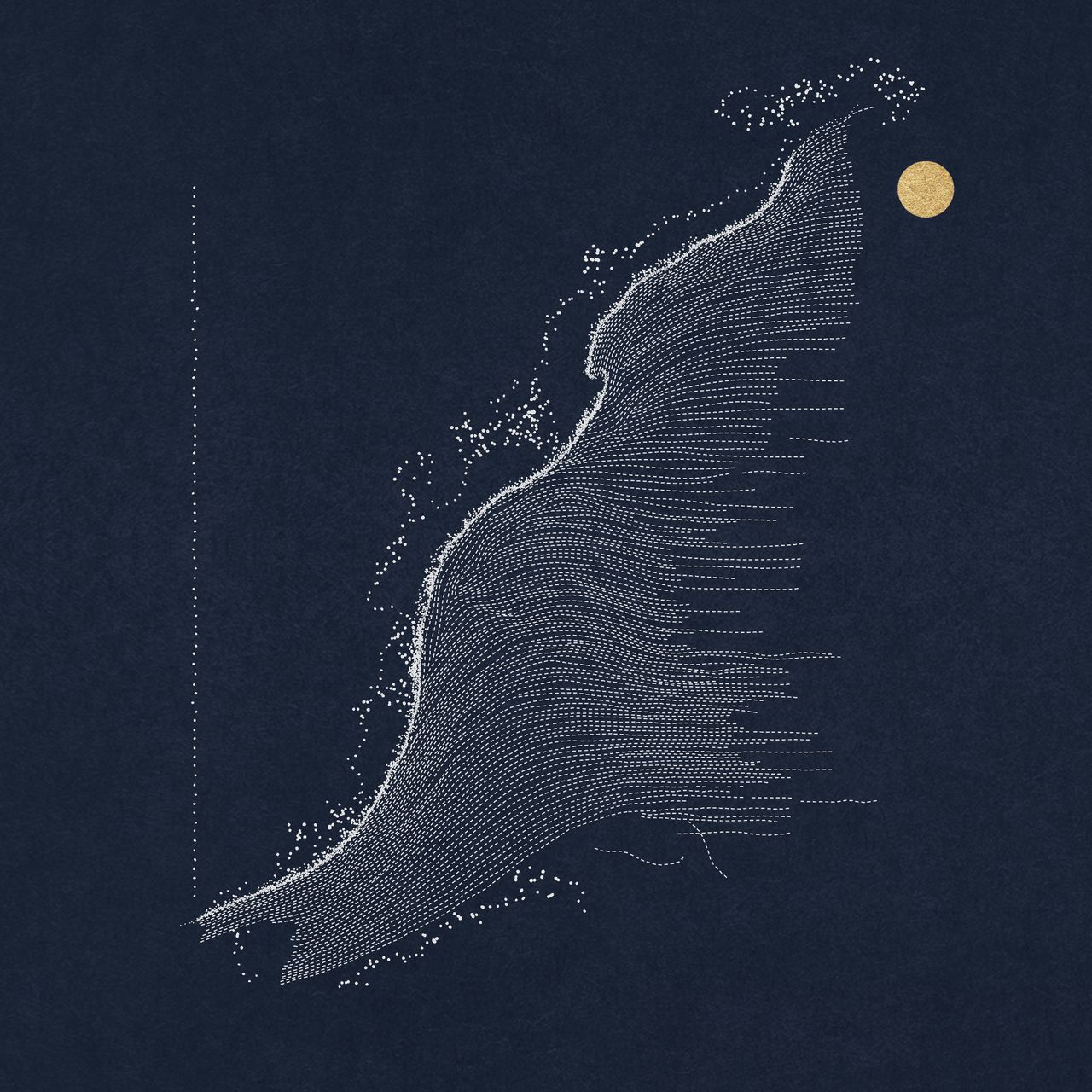Benjamin Lasky leapt into fame as the lowest of the low: A YouTube rapper. He built his name, Quadeca, with abrasive diss track hi-jinks and even more clickbaity imitations of famous MCs. But in the last half-decade, the Los Angeles musician has reinvented himself as an art-pop auteur, the kind of guy who travels to a small island in the Philippines to film a movie-length music video for his new and easily most ambitious album yet, Vanisher, Horizon Scraper.
Quadeca is obsessed with the open waters, its unconquerable hugeness. In the narrative of both the album and the movie, Quadeca plays a sailor leaving the comforts of his past life to embark on a quest for freedom and self-discovery—imagine Moby-Dick if Ahab were the last man on Earth and a 24-year-old with a neat puff of chin beard who’s beloved by Rate Your Music. Along the way, he finds a bottle, fights a beast, and finally drowns. It’s also a journey across the ocean of Quadeca’s mind, traversing his anxieties and existential fears: The way that being a perfectionist feels like a solo voyage into the dark, unsure if he’s benefiting anyone but himself; worries about AI “threatening the magic of the world” and ushering in the apocalypse. Vanisher bursts at the seams with metaphors, double-entendres, and a mille-feuille pastry’s worth of musical layers. It’s beautiful and overwrought, a stab at transcendence that works best as pure shivery sound rather than a story to dissect and decipher.
Quadeca departs from South America, looping the first three seconds of Brazilian artist Chico Buarque’s 1971 album Construção into the beat for “No Questions Asked.” “Waging War” melds flamenco dance-clops with Lex Luger snares, and “That’s Why” flips Alberto Baldan Bemo’s sumptuous “Samoa,” originally composed for an erotic film in the ’70s, into a canvas for existential wondering. His optimistic feelings collapse into dread as he realizes he’s gone too far to turn back. He faces off against the mythological serpent-dragon Bakunawa, played by Danny Brown, who threatens to eat the moon and can only be quelled by music. The ending teeters between terror and relief, as the sailor accepts his imminent death while seemingly grateful for the voyage. And that’s the story.
Along the way, Quadeca toys with baroque pop and bossa nova like a tweaked rap producer, finessing every chord loop and textural nano-layer until you can practically smell the salty coastline. His previous music was often experimental yet streamlined, constantly restless and mutating; he let the individual ideas sing without burying them in decorative textures. This album, by contrast, does everything, all the time. It’s closer to brakence’s neurotic intricacy, where songs contain rich stacks of instruments and verses unfold like a riddle without a solution.
